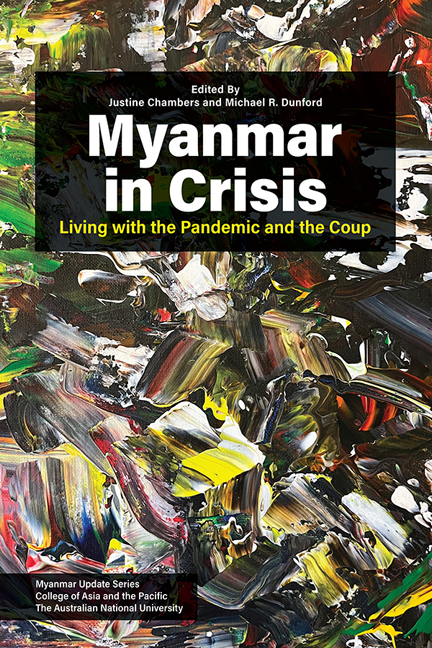13 - On Disappointment and Hope: Myanmar Studies and the Multiple Crises
Published online by Cambridge University Press: 01 March 2024
Summary
We are in an era of both crisis and disappointment: the hopes and plans of millions have been ruined by the myriad political-economic problems caused by COVID-19, but mostly by the impact of Myanmar's military coup. However, within disappointment, there is generative potential. Amidst the chaos and despair caused by the coup, a revolutionary movement has grown, pointing towards new and innovative political possibilities for Myanmar. This revolutionary turn has been indexed by a radical decolonial turn in Myanmar-focused academia: even in the “ivory tower”, many desire a fundamental shift in the terms of engagement. We view this decolonising movement as part of a revolutionary zeitgeist in Myanmar right now, a historical conjuncture in which the terms of political engagement are being renegotiated across the board. In this contested historical moment, we see potential for disappointment and frustration to drive a kind of paradoxical optimism. Much of the work being done now, in politics as in academia, is being done under the assumption that the future will be better than the present, that there is something worth working toward both in the politics of Myanmar itself and in Myanmar-focused research. The purpose of this concluding chapter is to trace a line from disappointment to revolution, and to consider what directions Myanmar research might be able to take in the future.
We will begin with a meditation on disappointment and frustration, with a particular focus on people who grew up during the “transition” (people born between the late 1990s and the 2010s — so-called Generation Z), who came of age during the peak of Myanmar's recent international research engagement. Unlike older generations, who have seen cycles of liberalism and military authoritarianism, Generation Z has never really had to contend directly with military dictatorship in Myanmar. They are disappointed, and they are angry. From there, we will examine how this anger has produced not only a revolutionary political movement within Myanmar, but also a radical shift towards decolonial praxis in Myanmar studies (see for example, Chu May Paing and Than Toe Aung 2021; Tharaphi Than 2022) — a shift that is still somewhat nascent, but undeniably an important feature of contemporary Myanmar research.
- Type
- Chapter
- Information
- Myanmar in CrisisLiving with the Pandemic and the Coup, pp. 323 - 338Publisher: ISEAS–Yusof Ishak InstitutePrint publication year: 2023

